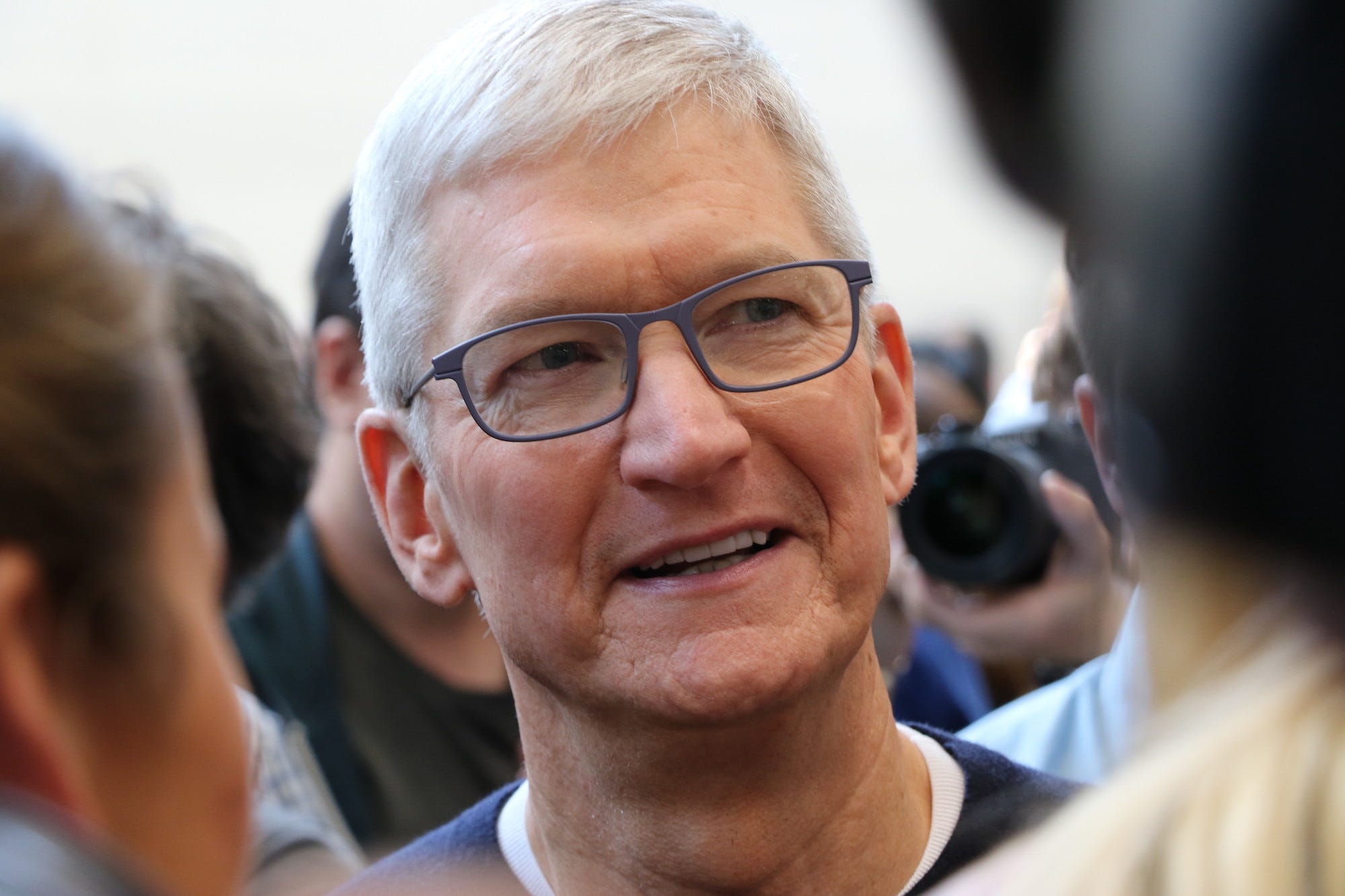- Apple became the first US-listed company to hit a $2 trillion valuation on Wednesday, a milestone for the company under CEO Tim Cook’s tenure.
- When Cook took over as CEO, there were many questions about whether the company could continue to innovate without Jobs.
- Nearly a decade into his tenure as Apple’s CEO, Cook has put his stamp on the company, transforming Apple into a company that’s focused on digital health, privacy, sustainability, and digital services.
- Cook was tasked with leading Apple as the market for its key product – the smartphone – matured, forcing the company to expand and innovate in new ways.
- Apple’s $2 trillion market capitalization is another vote of confidence in Cook’s Apple.
- Visit Business Insider’s homepage for more stories.
When Tim Cook took over as Apple’s CEO in August 2011 shortly before Steve Jobs’ death, his earliest critics questioned the direction of Apple’s innovation and creativity without Jobs, mostly driven by the fact that Apple’s most beloved products were still those invented under Jobs.
Simply put, Cook was known for his prowess in operations, while Jobs was the visionary. Jobs even said that Cook isn’t “a product person,” according to his biographer Walter Isaacson.
But in 2020, those concerns seem less relevant than ever. The tech giant became the first United States-listed company – and only the second company ever, after Saudi Aramco – to hit a $2 trillion market capitalization on Wednesday, a valuation sure to be one of the hallmarks of Cook’s tenure.
The $2 trillion milestone is just another sign that Cook’s early critics were wrong. Apple may never invent another product that’s as revolutionary as the iPhone, but Cook has pulled off an even more challenging feat: stepping out of Jobs’ shadow.
Under Cook's reign, Apple has evolved into more than just the "iPhone" or "iPod" company. It's delved into the digital health market, dominated the wearable tech industry with the Apple Watch, created a new product category that's been widely emulated by competitors with its AirPods, and re-invented itself as a company that's just as focused on digital services as it is hardware.
It's also made a major push for privacy and sustainability in an industry not known for either, including committing to becoming 100% carbon neutral for its supply chain and products by 2030. And Cook has deftly navigated a trade war with China and a global pandemic that uprooted its global operations.
Cook succeeded in making Apple his own, but he also effectively morphed Apple's business as the industry began to change. The smartphone market started to mature only a few years after Cook took over, sparking worries about Apple's future given its reliance on the iPhone. The pressure was mounting for Apple to build "the next big thing," setting expectations for the Apple Watch sky-high when Apple unveiled it back in 2014.
The Apple Watch wasn't an immediate hit. Initial reviews were lukewarm, but fast-forward to 2020, and Apple now ships more wearable devices than any other company, including its biggest competitors like Samsung, Huawei, and Fitbit, according to The International Data Corporation.
Apple's services business has also blossomed under Cook, as it's now the second-largest driver of Apple's quarterly revenue behind the iPhone. The company's success in both wearables and services helped offset slowing iPhone sales throughout 2019, giving Wall Street confidence about Apple's long-term outlook and easing concerns about the iPhone's slump.
Of course, not everything under Cook will be remembered fondly. Apple, and other tech giants such as Google, Facebook, and Amazon, have been under scrutiny over concerns that their dominance and influence hampers competition in the industry. Apple's position as both the operator of and a competitor in its App Store has been at the heart of lawmaker's concerns, and "Fortnite" creator Epic is the latest developer to take issue with the company's controversial policies.
Apple has also been at odds with the FBI under Cook's watch over its refusal to create a backdoor into iPhones to assist with investigations because of security concerns. And not every new Apple product released under Cook's tenure has been a hit; Apple's HomePod smart speaker trails rival devices from Google and Amazon.
Cook's innovation has turned Apple into a modern corporation with multiple revenue streams - not just a hardware manufacturer with a devoted user base. But Apple's $2 trillion valuation is a sign that these long-term bets on services and subscriptions are certainly paying off.

